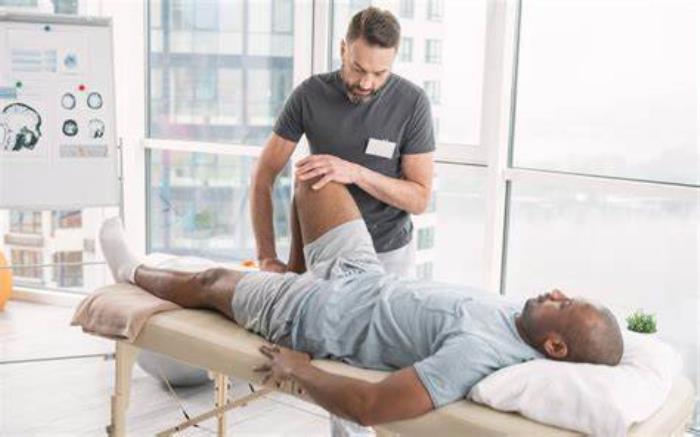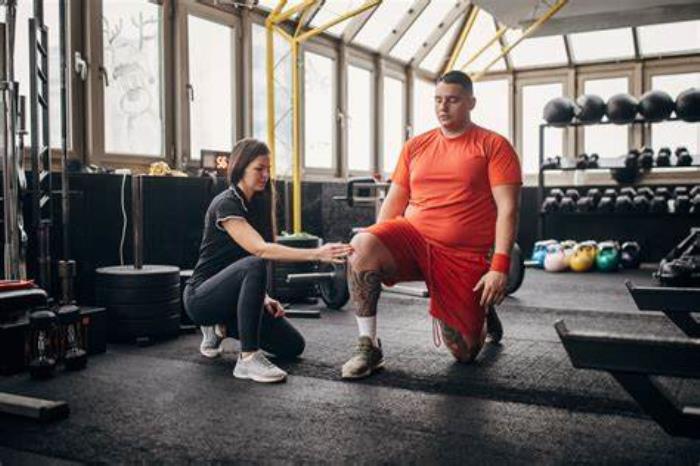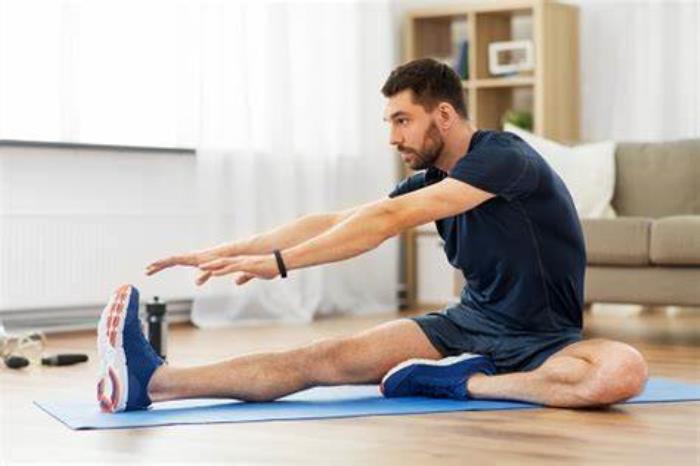Bariatric surgery recovery is a critical phase in a patient's weight loss journey, involving a comprehensive approach to healing and adjustment following the procedure. This period typically includes significant lifestyle changes, with a focus on nutrition, physical activity, and emotional well-being.
An integral part of recovery is the role of a multidisciplinary team that often includes surgeons, dietitians, and physical therapists. Each professional contributes to a holistic approach, ensuring that patients receive the support they need to navigate the challenges that come with their new lifestyle.
Understanding the Importance of Physical Therapy
Physical therapy is a vital component of bariatric surgery recovery, as it helps patients regain strength, improve mobility, and enhance overall physical function. After surgery, patients may experience fatigue, discomfort, and reduced physical activity levels, making it essential to gradually reintroduce movement into their daily routines. A licensed physical therapist can guide patients through safe exercises tailored to their individual needs and abilities, promoting recovery while minimizing the risk of injury.
Additionally, physical therapy addresses specific post-operative challenges, such as muscle weakness and joint stiffness. By focusing on strengthening core muscles and improving flexibility, physical therapists help patients rebuild their physical health, which is essential for long-term weight management. Overall, incorporating physical therapy into the recovery process can lead to improved outcomes and a smoother transition to a healthier lifestyle.
How Physical Therapy Aids in Post-Surgery Healing
Physical therapy aids in post-surgery healing by promoting circulation, reducing swelling, and alleviating pain through guided movements and targeted exercises. These therapeutic interventions are designed to enhance the body's natural healing processes, allowing patients to recover more effectively. Additionally, physical therapy can help address common post-surgical concerns, such as limited range of motion and discomfort associated with prolonged inactivity.

Therapists utilize a variety of techniques, including manual therapy, stretching, and strengthening exercises, to facilitate healing. They also educate patients on proper body mechanics and posture to prevent complications and enhance recovery. By focusing on individualized care, physical therapy ensures that each patient receives the support necessary to meet their specific recovery goals and promotes a safe return to daily activities.
Benefits of Early Mobilization After Bariatric Surgery
Early mobilization after bariatric surgery is crucial for a successful recovery, as it offers numerous benefits that significantly impact overall health. Engaging in light physical activity shortly after surgery can help prevent complications such as blood clots, pneumonia, and other issues associated with prolonged bed rest. Early mobilization also enhances circulation, which aids in wound healing and minimizes swelling, leading to a more comfortable recovery experience.
Incorporating movement into the daily routine helps patients gradually rebuild strength and stamina, making it easier to transition to a more active lifestyle. Physical therapists often encourage patients to start with simple activities, such as walking, before progressing to more structured exercise routines. By embracing early mobilization, patients set the foundation for long-term success in their weight loss journey and promote overall well-being.
Tailored Exercise Programs for Bariatric Patients
Tailored exercise programs for bariatric patients are essential for optimizing recovery and promoting long-term weight management. These programs are designed with individual needs in mind, taking into account each patient's physical capabilities, medical history, and post-operative restrictions. By offering a personalized approach to exercise, physical therapists ensure that patients can safely and effectively engage in physical activity as they recover from surgery.
A well-rounded exercise program typically includes aerobic activities, strength training, and flexibility exercises. Aerobic exercises, such as walking or cycling, help improve cardiovascular health and aid in weight loss, while strength training builds muscle mass and boosts metabolism. Flexibility exercises promote joint health and prevent stiffness. By following a tailored exercise program, patients not only enhance their recovery but also establish healthy habits that contribute to their long-term weight loss success and overall quality of life.
Strengthening Exercises to Support Recovery
Incorporating strengthening exercises into your recovery plan after surgery can significantly enhance healing and promote muscle regrowth. These exercises help rebuild strength, improve mobility, and support overall functional recovery. Patients should begin with low-impact exercises that target major muscle groups, gradually increasing resistance as they progress. Activities like resistance band workouts, bodyweight exercises, and light weights can be beneficial. Working with a physical therapist can ensure that exercises are tailored to individual needs and safety, helping to avoid strain while effectively strengthening muscles.

The Role of Flexibility and Stretching in Healing
Flexibility and stretching play a vital role in the healing process post-surgery. Engaging in regular stretching exercises helps improve blood circulation, enhances range of motion, and reduces muscle tension. These benefits are crucial for maintaining mobility and preventing stiffness around surgical sites. Gentle stretching routines, focusing on affected areas, should be incorporated into daily activities. Collaborating with a physical therapist can help develop an appropriate stretching regimen that promotes flexibility while avoiding overexertion or discomfort during recovery.

Monitoring Progress: Physical Therapy Assessments
Regular assessments by a physical therapist are essential for monitoring progress during recovery. These evaluations help track improvements in strength, flexibility, and overall function, providing valuable feedback on the effectiveness of the rehabilitation program. By setting measurable goals, patients can stay motivated and aware of their progress. Adjustments to the treatment plan can be made based on assessment findings, ensuring that recovery remains on track and tailored to the individual's needs for optimal healing outcomes.
Preventing Complications Through Physical Therapy
Physical therapy is instrumental in preventing complications after surgery, such as muscle atrophy, joint stiffness, and circulatory issues. A structured rehabilitation program can help minimize these risks by encouraging movement and strengthening surrounding muscles. Physical therapists educate patients on proper movement mechanics and techniques to avoid strain or injury during recovery. This proactive approach not only enhances recovery but also prepares patients to resume normal activities safely and efficiently.
Managing Pain and Discomfort with Therapeutic Techniques
Managing pain and discomfort after surgery is crucial for a successful recovery, and therapeutic techniques offered by physical therapists can play a significant role. Techniques such as manual therapy, ultrasound, and electrical stimulation can help alleviate pain and reduce inflammation. Additionally, guided exercises that promote gentle movement can assist in managing discomfort. Patients should communicate openly with their therapist about their pain levels, enabling the therapist to tailor strategies that effectively address individual needs and improve comfort during the healing process.
The Psychological Benefits of Physical Activity
Engaging in physical activity during recovery offers significant psychological benefits alongside physical healing. Exercise has been shown to reduce symptoms of anxiety and depression, promoting overall emotional well-being. It fosters a sense of accomplishment and empowerment, helping patients regain confidence in their physical abilities. Regular physical activity can also improve sleep quality and reduce stress levels, contributing to a more positive outlook on recovery. Encouraging patients to incorporate enjoyable physical activities into their routines can enhance their mental resilience during the healing process.
Nutrition and Physical Therapy: A Combined Approach
Integrating nutrition with physical therapy can significantly enhance recovery outcomes after surgery. Proper nutrition provides the essential building blocks for tissue repair and muscle recovery, ensuring patients have the energy and nutrients needed for effective rehabilitation. Collaborating with a registered dietitian alongside a physical therapist can create a holistic recovery plan tailored to individual needs. This approach promotes optimal healing by combining the physical benefits of exercise with the nutritional support necessary for recovery, leading to improved overall health.
Setting Realistic Goals with Your Physical Therapist
Establishing realistic and achievable goals with your physical therapist is a fundamental aspect of recovery. Setting specific, measurable, and time-bound goals helps patients remain focused and motivated throughout their rehabilitation journey. Goals may include increasing strength, improving range of motion, or returning to specific daily activities. Working closely with a therapist ensures that these goals are tailored to individual progress and needs, allowing for adjustments as recovery advances, and fostering a sense of accomplishment at each milestone achieved.

Transitioning Back to Daily Activities After Surgery
Transitioning back to daily activities after surgery is a critical phase of recovery that requires careful planning and support. Patients should work closely with their healthcare team to develop a gradual return-to-activity plan that considers their physical capabilities and limitations. This process may involve modifying daily tasks, incorporating adaptive techniques, or gradually increasing activity levels. Being mindful of one's body and recognizing signs of fatigue or discomfort is essential during this transition. Successful reintegration into daily life can significantly enhance overall recovery satisfaction and quality of life.
Long-Term Maintenance: Incorporating Exercise into Lifestyle
Incorporating exercise into one’s lifestyle post-recovery is essential for maintaining long-term health and well-being. Patients are encouraged to develop a sustainable exercise routine that includes a mix of cardiovascular, strength, and flexibility training. Finding enjoyable activities can enhance adherence to an active lifestyle. Setting new fitness goals, participating in group classes, or engaging in recreational sports can keep motivation high. Regular physical activity not only supports physical health but also contributes to mental well-being, making it a vital component of a healthy lifestyle following surgery.
Success Stories: Patients Who Benefited from Physical Therapy
Numerous patients have experienced significant improvements in their recovery journeys through the integration of physical therapy following bariatric surgery. Many report enhanced mobility, increased strength, and better overall physical function, enabling them to return to activities they enjoy. For instance, one patient shared how physical therapy helped her regain the confidence to participate in group fitness classes, which she had previously enjoyed before surgery. Another individual noted a remarkable reduction in pain and discomfort, which allowed him to resume his active lifestyle and enjoy outdoor activities with his family. These success stories highlight the vital role that personalized physical therapy plays in achieving optimal recovery and quality of life after surgery.
Finding a Qualified Physical Therapist for Bariatric Recovery
Choosing the right physical therapist is crucial for a successful recovery after bariatric surgery. Patients should look for therapists who specialize in post-operative care and have experience with bariatric patients. It’s essential to verify credentials, such as licensing and certifications in areas like weight management and post-surgical rehabilitation. Personal recommendations from healthcare providers or support groups can also guide patients toward qualified professionals. An initial consultation can help assess whether the therapist's approach aligns with the patient's recovery goals, ensuring a supportive and effective rehabilitation process.
Addressing Common Concerns About Physical Therapy
Many patients have concerns about starting physical therapy after bariatric surgery, often questioning its safety, effectiveness, and potential discomfort. It’s essential to understand that physical therapy is designed to be tailored to individual needs and capabilities, promoting gradual recovery. Patients may worry about pain during exercises; however, therapists prioritize comfort and implement strategies to manage discomfort while progressing in strength and mobility. Open communication with the physical therapist about any concerns or limitations is crucial, allowing for adjustments to the treatment plan that prioritize patient comfort and confidence during recovery.
Group Therapy and Support: Building Community
Group therapy can be an invaluable resource for patients recovering from bariatric surgery, providing a supportive environment to share experiences and challenges. These sessions foster a sense of community, allowing individuals to connect with others who understand their journey. Group therapy often incorporates exercise and educational components, offering both physical and emotional support. Participants can share success stories, exchange coping strategies, and motivate each other to achieve their recovery goals. This communal approach not only enhances accountability but also nurtures lasting friendships, which can be beneficial for long-term weight management and emotional well-being.
Nutrition Tips for Optimal Healing After Revision Bariatric Surgery
Understand essential nutrition tips for optimal healing after undergoing revision bariatric surgery. Focusing on nutrient-dense foods, adequate hydration, and balanced meals can significantly impact recovery and long-term health outcomes, making diet a key factor in the healing process.
Exploring the Latest Research on Revision Bariatric Surgery
Delve into the latest findings and advancements in revision bariatric surgery. Understanding ongoing research can provide insights into new techniques, improved patient outcomes, and the evolving landscape of bariatric care, helping patients make informed decisions about their surgical options.
Best Revision Bariatric Surgery in India
The Best Revision Bariatric Surgery in India helps patients who have not achieved the desired results from their initial weight loss surgery, offering advanced techniques to improve outcomes and ensure long-term success.
Best Revision Bariatric Hospitals in India
The Best Revision Bariatric Hospitals in India are equipped with modern technology and skilled teams, providing comprehensive care that includes pre-surgery assessments and post-surgical follow-up for optimal recovery.
Revision Bariatric Surgery Cost in India
The Revision Bariatric Surgery Cost in India is competitive and transparent, offering patients affordable treatment options while maintaining the highest standards of care and personalized attention at top hospitals.
Best Revision Bariatric Surgeons in India
The Best Revision Bariatric Surgeons in India have extensive experience in weight loss revision procedures, ensuring precise surgical techniques and individualized patient care to achieve the best possible outcomes.
FAQs About Physical Therapy in Bariatric Surgery Recovery
How soon after surgery should I start physical therapy?
Patients are typically encouraged to begin physical therapy within a few weeks post-surgery, depending on their individual recovery progress and healthcare provider recommendations.
Will physical therapy be painful?
While some discomfort may occur during initial sessions, a qualified therapist will tailor exercises to individual capabilities, prioritizing comfort and safety.
How often should I attend physical therapy sessions?
The frequency of sessions varies based on individual needs but generally ranges from one to three times per week, depending on recovery goals.
Can physical therapy help with weight loss after surgery?
Yes, physical therapy can enhance weight loss efforts by promoting physical activity, improving strength, and fostering healthy lifestyle habits that support long-term weight management.
What types of exercises will I do in physical therapy?
Therapists typically incorporate a mix of strength training, flexibility exercises, and aerobic conditioning tailored to each patient’s needs and recovery stage.
Related Resources
At ArogyaJivan, we strive to provide you with the most accurate and up-to-date information to help you make informed decisions about your healthcare. Whether you are searching for the Best Doctors in India or the Top 5 Doctors in India, our resources are tailored to guide you through your medical journey. Additionally, our comprehensive guides on the Best Hospitals in India and the Top 5 Hospitals in India will assist you in choosing the right healthcare facility for your needs. Explore these resources to ensure you receive the best possible care.